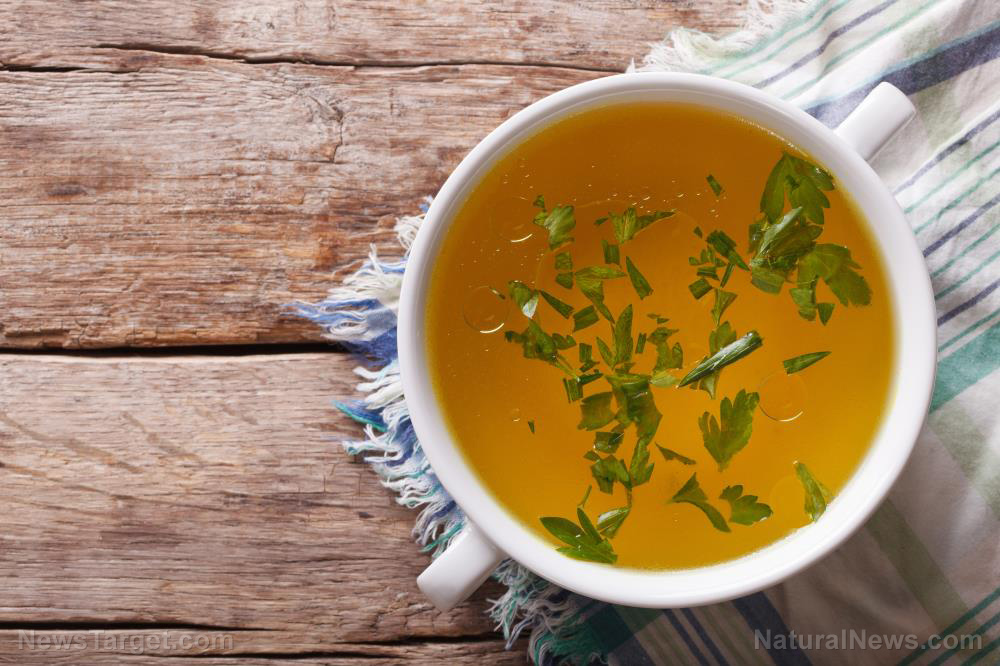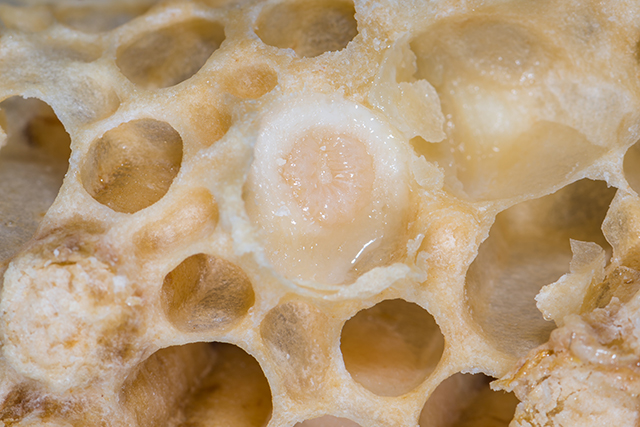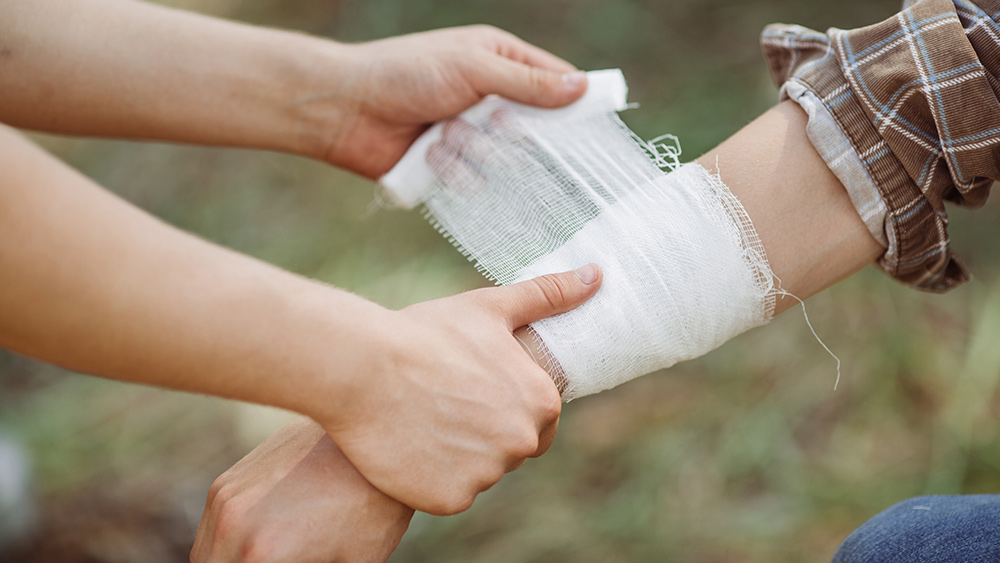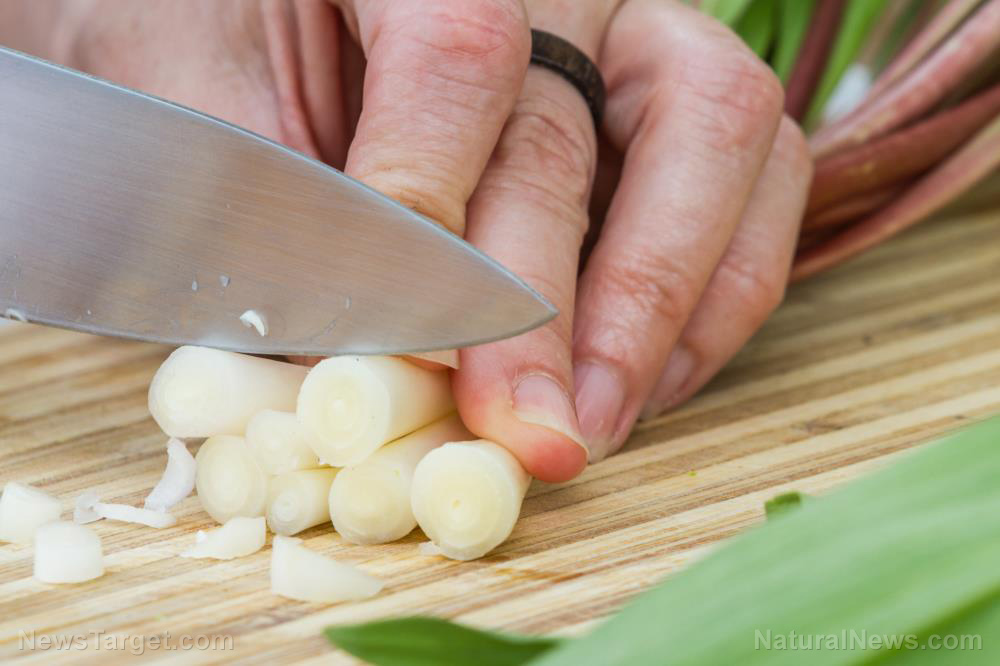The rebirth of broth: Peasant superfood and ultimate beauty secret
03/08/2024 / By News Editors

Homemade broth can restore your joints, blood vessels, skin, bone, intestines and more…
(Article republished from GreenMedInfo.com)
We argue over the great nutritional deficiencies of our time. Some say omega 3’s, others propose low mineral levels like magnesium, selenium, zinc, while still others cite the lack of every vitamin, fruit, vegetable, herb, spice and amino acid. Sure! They are all correct, more or less.
Maybe the most overlooked deficiency is simply real soup, not the stuff in a can. The easily absorbed proteins and minerals once found in the peasant’s soup pot are absent in today’s popular boneless/skinless chicken breast or other foods of convenience. Any fish or animal carcass plus a mix of veggies and herbs has always been the ticket to restoring the human “carcass.” Broth bars are springing up around the country in the footsteps of juice bars as healthy choices over fast foods and vending machine snackage.
Strong Statement, Undeniable Biochemistry
The epidemic of arthritis, heart/artery and bowel disease, rampant sports injuries, skin problems and skeletal erosion is largely due to the lack of soup and vitamin C, which is critical for collagen synthesis. Collagen is the substance that cartilage joint surfaces, spinal discs, tendons, ligaments, bones, blood vessels, lymphatics, fascia, fat cells, mucous membranes and beautiful skin are made from. These connective tissues are the mud and straw of our bodies, the glue and fiber that hold us together and even act as an internal electric grid.
Homemade soups contain a raft of proteins, including the amino acids lysine and proline emphasized by Linus Pauling along with glucosamine/chondrotin sulfate and hyaluronic acid plus all the phosphorous and other minerals that leach from bone and cartilage. You may note these contents in various arthritis supplements and see Vitamin C/collagen appearing on labels of high end beauty and wrinkle creams.
Stocks can be used in dozens of ways beside soup to slurp with a spoon. The best gravies, sauces, stews and gumbos start with stocks, and grains like rice and quinoa can be cooked in stock.
How-To in a Nutshell
Chicken soup is fine but imagine fish heads, shrimp shells, deer bones, wild duck and turkey carcasses along with the standard beef, pork and lamb. In a pinch and for strong gelatin, grab some split pig feet and tails and gnaw the skin and cartilage, too. Connoisseurs prefer to simmer beef bones for 24-36 hours, but 6 hrs is plenty for beef stew in my kitchen. Some roast bones first to add flavor. All the others make fine stocks in under two hours of gentle cooking, more like simmering than hard boiling. Fish stocks of smallish non-oily salt water species may be the most nutrient diverse — just gut, snip out gills and rinse in brine.
All it takes is a big stainless steel pot, water, sea salt, pepper, garlic, onion, celery and acidic vinegar, lemon juice or tomatoes to insure maximum mineral release. Fish head stocks also require a fine screen to strain scales. Any vegetable, herbs like thyme, basil, bay, oregano and even ginger, turmeric, pineapple skins, hot peppers, potatoes, noodles and rice work; check recipes on internet and use your imagination, because anything goes. Vegetables can be steamed or roasted separately or added near the end to prevent over cooking. The thickness of gelatin upon refrigeration is proof positive of success and gels themselves are full of richly structured water. Reheat only the portion to be consumed. Fresh stocks can be frozen.
Plan a Protocol
Soups and extra Vitamin C are standard maintenance when healthy, but facing any symptoms like gum disease, arthritis, skin problems, joint sprains, digestive issues or even colds/sinus… require raising the doses. Higher doses might include pig feet or fish soup plus 3-5 oral megadoses of Vitamin C/baking soda per day, every day, until completely healed. Expect results and improvement with some issues in days and weeks to possibly a month or two for joint/tendon/ligament/cartilag
When joint problems and sports injuries are slow to heal patience is an asset, yet one can always try to accelerate the process of rebuilding and regenerating tissues, molecule by molecule. Additional therapies that help:
- Five to ten minutes of pure oxygen (or sessions of hyper-ventilation exercise) several times a day up to HBOT treatments for more severe complaints. More oxygen means more healing cell energy with reduced acidity and inflammation for any injury, infection or concussion. Alkalizing the system with bicarbonate of soda, apple cider vinegar and magnesium supplements moves more O2.
- Raising circulation with cayenne, niacin, sauna, exercise, and massage to move oxygen and lymphatic wastes.
- Anti-inflammatory polyphenol-packed herbals like ginger, turmeric, garlic and MSM sulfur internally, and cannabis oil, magnesium oil and capsicum creams externally reduce pain and swelling. Pauling also recommended vitamin E.
- Pulsed lasers are winning acclaim for joint pains among chiropractors and veterinarians.
Pain is a great motivator, driving many to drink, drugs and surgeries. Understanding body chemistry and acquiring the simple art of making healing soups is worth more than gold when you consider the alternative.
Read more at: GreenMedInfo.com
Submit a correction >>
Tagged Under:
aging secrets, alternative medicine, Bone Broth, bone health, broth, collagen, food cures, food is medicine, food science, health science, joint health, natural cures, natural health, natural medicine, naturopathy, nutrients, nutrition, protein, remedies, vitamin C
This article may contain statements that reflect the opinion of the author
RECENT NEWS & ARTICLES
consumerwellness.info is a fact-based public education website published by consumerwellness.info
All content copyright © 2023 by consumerwellness.info
Contact Us with Tips or Corrections
All trademarks, registered trademarks and servicemarks mentioned on this site are the property of their respective owners.




















